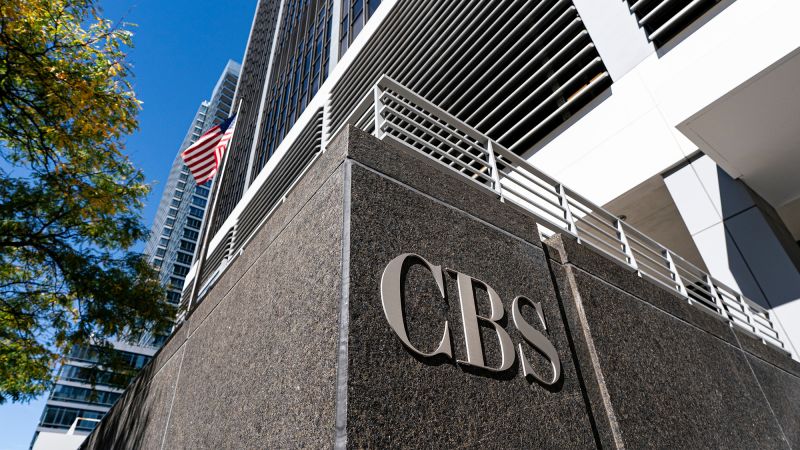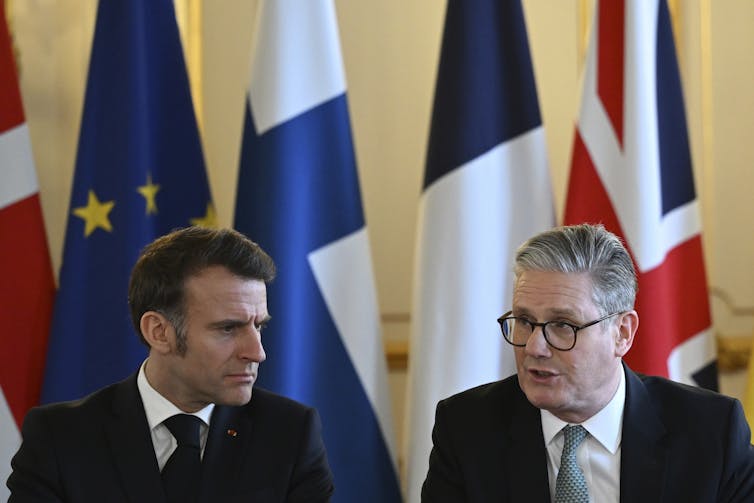Trump Calls for FCC Action Against CBS Over ’60 Minutes’ Coverage
Former President Donald Trump has publicly urged the Federal Communications Commission (FCC) to penalize CBS for airing “60 Minutes” reports he deems unfavorable, sparking concerns about political influence over media and the future of the Paramount Global-Skydance Media merger, Archyde News reports.
Published:
Trump’s Truth Social Post Ignites controversy
In a recent post on Truth Social, former President Donald Trump directly addressed his grievances wiht CBS and its “60 Minutes” program. Trump stated he harbors a “hope” for his Federal Communications Commission: that the agency “will punish CBS for airing ’60 Minutes’ reports he doesn’t like.” this statement has reignited the debate surrounding potential political interference with media independence and the role of regulatory bodies like the FCC.
Apparently angered by a recent “60 Minutes” broadcast, Trump wrote about his ongoing legal battle with CBS and its parent company, Paramount Global, which awaits FCC approval to merge with Skydance Media.
Trump specifically called out Brendan Carr, the FCC chair he appointed, referring to him as “Highly Respected.” He expressed his hope that Carr “will impose the maximum fines and punishment, which is considerable, for their unlawful and illegal behavior.”
However, it’s crucial to note that “ther is no evidence of illegal behavior by CBS.”
FCC’s Limited Power and the Paramount Merger
While Trump’s call for “punishment” raises eyebrows, the FCC’s actual power in this situation is limited. While the FCC does not license networks like CBS, it does license individual local stations owned by the network. Any direct action against CBS, thus, would likely target these local affiliates.
More significantly, “the FCC’s delay in approving Paramount’s merger has already created uncertainty at the company.” The potential for political pressure influencing this merger approval is a growing concern within the media industry. Delaying or blocking the merger could have notable financial implications for Paramount Global and Skydance Media.
The U.S. media landscape is already heavily consolidated,with a few major players controlling a large share of the market. A stalled merger could further entrench these existing power structures.
Major Media Mergers in the Last Decade
| Merging Companies | Year | Outcome | Implications |
|---|---|---|---|
| Disney & 21st Century Fox | 2019 | Completed | Expanded Disney’s content library and streaming services. |
| AT&T & Time warner | 2018 | Later unwound | Initially aimed to integrate content and distribution but faced regulatory challenges. |
| Comcast & NBCUniversal | 2011 | Completed | Combined a major cable provider with a broadcast network and film studio. |
Trump’s History with CBS and “60 Minutes”
Trump’s animosity toward “60 Minutes” is not new.He declined the program’s customary pre-election interview request last fall. He also criticized the show’s editing of an interview with then-candidate Kamala Harris, accusing CBS of manipulating her statements to favor her campaign.
Trump and his media allies castigated “60 Minutes” for airing one part of Harris’s answer to a question on one day and the othre part of her answer on another day.
CBS said it had merely edited her answer for time, in accordance with TV news standards, but Trump recast the controversy as a conspiracy, alleging that the network was colluding to help Harris win the election.
This lead to a lawsuit filed in texas, accusing CBS of violating the state’s Deceptive Trade Practices Act. While numerous First Amendment attorneys deemed the suit frivolous, it underscores Trump’s willingness to use legal avenues to challenge media outlets he perceives as biased.
Even after CBS handed over the raw transcript and tapes of the interview, which proved that it engaged in normal editing, Carr kept the inquiry open and invited the public to comment.
The New York Times recently reported that some at Paramount think its “broader corporate interests are not served by fighting a protracted legal battle” with a vengeful president.
To date, no settlement has materialized and CBS continues to battle Trump in court.
First Amendment Concerns and Potential Chilling Effect
Trump’s repeated calls for action against CBS raise serious First Amendment concerns. Critics argue that such pronouncements, especially from a powerful political figure, can create a chilling effect, discouraging journalists from pursuing critical reporting for fear of retribution.
Political scientist Brendan Nyhan, co-founder of Bright Line Watch, which monitors threats to American democracy, translated Trump’s Truth Social post this way: “The president openly calls for his loyalist apparatchik at the FCC to use state power to punish media for critical coverage.”
Lesley Stahl, a “60 Minutes” correspondent, alluded to these pressures while accepting a First Amendment Award last month. She stated she was especially honored to receive the award at a time when “our precious First Amendment feels vulnerable and when my precious 60 Minutes is fighting, quite frankly, for our life.”
“I am so proud,” stahl said, that “60 Minutes” is “standing up and fighting for what is right.”
Analysis: The Broader Implications
This situation highlights a recurring tension between political power and media freedom in the United States.While the First Amendment guarantees freedom of the press, the potential for government influence, whether through regulatory bodies or other means, remains a persistent concern.
The case of Trump and CBS underscores the importance of an independent and robust media landscape capable of holding those in power accountable. It also raises questions about the appropriate role of regulatory agencies like the FCC in policing media content, especially when allegations of bias intersect with political motivations.
Moving forward, it will be crucial to monitor the FCC’s actions regarding the Paramount Global-Skydance Media merger and to assess whether political considerations are influencing regulatory decisions. The outcome of this situation could have far-reaching implications for the future of media consolidation and the independence of journalism in the U.S.







